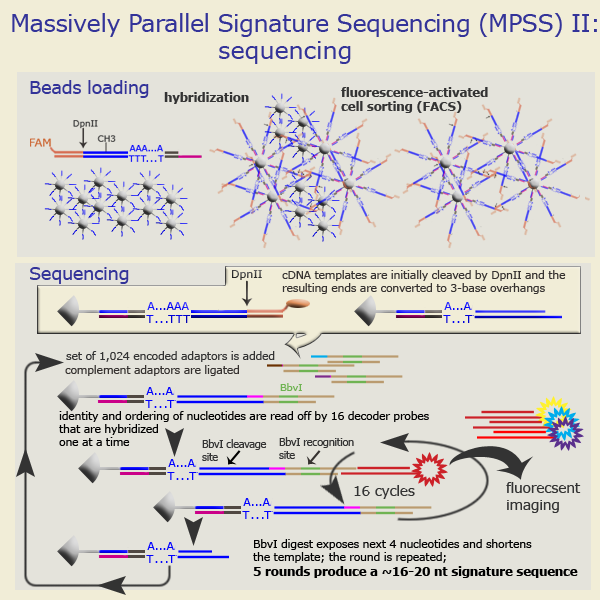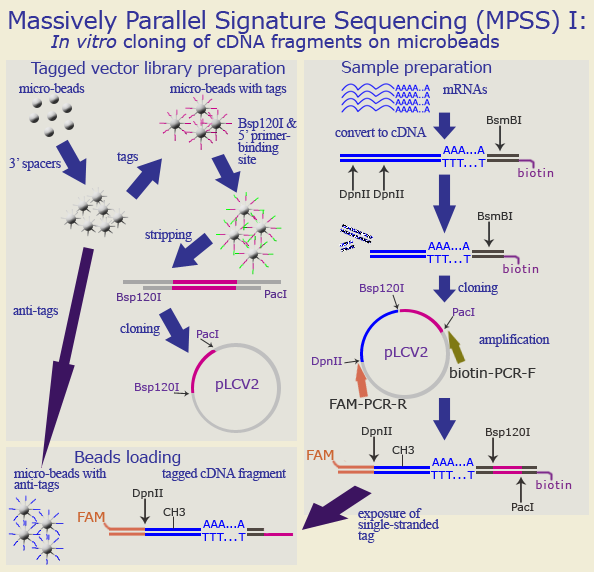 |
 |
||||||
   |
|
|
MPSS
|
Massively Parallel Signature Sequencing (MPSS)IntroductionMassively Parallel Signature Sequencing (MPSS) is a an open-ended platform that analyses the level of gene expression in a sample by counting the number of individual mRNA molecules produced by each gene. Tagged PCR products produced from cDNA are amplified so that each corresponding mRNA molecule gives ~100,000 of PCR products with a unique tag. Tags are used to attach the PCR products to microbeads. After several rounds of ligation-based sequence determination using the type IIs restriction endonuclease BbvI, a sequence signature of ~16-20 bp is identified from each bead; routinely, 17 bp of high quality sequence is obtained. This is performed in parallel, and approximately 1,000,000 sequence signatures are obtained per experiment. Each signature sequence (MPSS tag) in a MPSS dataset is analyzed, compared with all other signatures and all identical signatures are counted. The level of expression of any single gene is calculated by dividing the number of signatures from that gene by the total number of signatures for all mRNAs present in the dataset. MPSS datasets are additive in nature, which means that datasets from multiple analyses with the same starting mRNA sample can be combined. MPSS has routine sensitivity at a level of a few molecules of mRNA per cell, and the datasets are in a digital format that simplifies the management and analysis of the data. How it works
cDNA fragments are cloned onto micro-beads using the Lynx Megaclone technology. Starting with ome million mRNA molecules from a particular cell or tissue sample, Megaclone will produce one million beads, each containing 100,000 cloned copies of cDNA from each mRNA molecule. All molecules are covalently attached to the micro-beads at their poly(A) ends, so the DpnII end is available for the sequencing reactions. 
ProbeSample Queries
References» Reinartz J et al. Massively parallel signature sequencing (MPSS) as a tool for in-depth quantitative gene expression profiling in all organisms. Brief Funct Genomic Proteomic. 2002 Feb;1(1):95-104. PMID: 15251069 » Brenner S et al. Gene expression analysis by massively parallel signature sequencing (MPSS) on microbead arrays. Nat Biotechnol. 2000 Jun;18(6):630-4. Erratum in: Nat Biotechnol 2000 Oct;18(10):1021. PMID: 10835600 » Torres TT, Metta M, Ottenwälder B, Schlötterer C. Gene expression profiling by massively parallel sequencing. Genome Res. 2007 Nov 21 PMID: 18032722 |
Questions or Comments?
E-mail the NCBI Service Desk
